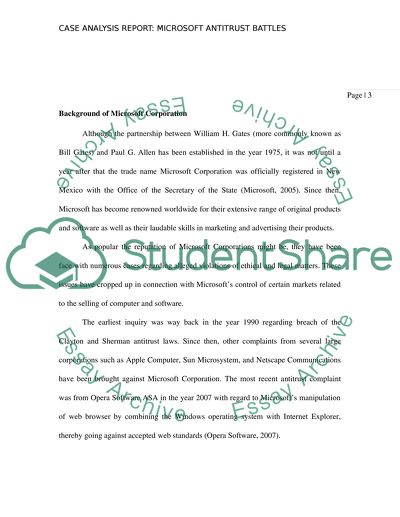Cite this document
(Microsofts Display of Unethical Behavior Term Paper, n.d.)
Microsofts Display of Unethical Behavior Term Paper. Retrieved from https://studentshare.org/information-technology/1561017-case-analisys-report-microsoft-antitrust-battles
Microsofts Display of Unethical Behavior Term Paper. Retrieved from https://studentshare.org/information-technology/1561017-case-analisys-report-microsoft-antitrust-battles
(Microsofts Display of Unethical Behavior Term Paper)
Microsofts Display of Unethical Behavior Term Paper. https://studentshare.org/information-technology/1561017-case-analisys-report-microsoft-antitrust-battles.
Microsofts Display of Unethical Behavior Term Paper. https://studentshare.org/information-technology/1561017-case-analisys-report-microsoft-antitrust-battles.
“Microsofts Display of Unethical Behavior Term Paper”, n.d. https://studentshare.org/information-technology/1561017-case-analisys-report-microsoft-antitrust-battles.


